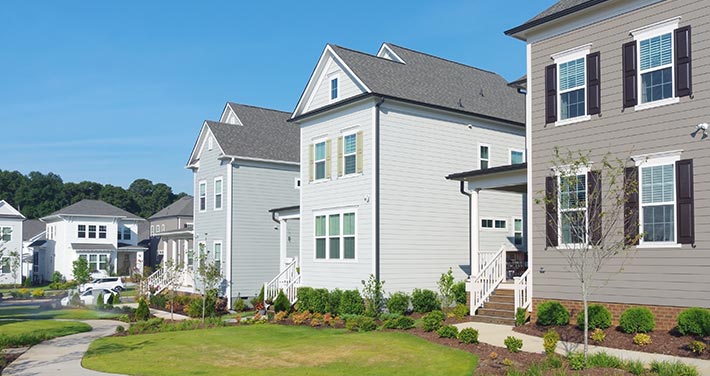Of all the factors that contribute to fluctuations in your energy consumption, weather has the biggest impact. Here in New England, it’s not unheard of to start the day with the heat on and end it in airconditioned comfort. But there are a number of other reasons that can affect your energy consumption and the costs associated with it.
Seasonal temperature fluctuations are the most obvious contributor to increases (and decreases) in energy costs. Air-conditioning and heating combined account for as much as 56% of home energy consumption, so it stands to reason that Mother Nature plays a starring role in your utility bill. Even if your thermostat is set to the same temperature every day, your heating and cooling system has to work harder to maintain that setting when the weather gets hotter or colder. Here are some questions to ask yourself when faced with the unanticipated – and be sure to check out some of our other posts for tips on how to save.
Year-Round
The number of days in your billing cycle can vary. Severe weather or unforeseen events can affect meter reading dates, and it’s not unusual for some billing cycles to include one or two more days than others – you can find this information on your electric and gas statements. Working from home? Chances are you’re using more heat and more air-conditioning – particularly during peak business hours – than when you were in the office for 8 to 10 hours a day.
When you are home, you’re likely using electricity for other tasks, such as entertainment, laundry, cooking and baking, etc. – electronics and appliances that would otherwise lay idle.
In the Winter
The amount of snowfall plays a big role in energy consumption – a cold, dry winter will drive up your gas and/or electric bill more than a snowy season because snow has insulating properties that minimize heat loss. A foot of light, fluffy snow provides roughly the same insulating value as a 2x4 wall filled with fiberglass insulation.
Vying for a spot on The Great Christmas Light Fight? If your home is the holiday showplace of your neighborhood, consider investing in LED lights, which use a fraction of the electricity consumed by incandescent bulbs. Bonus: LEDs remain cool to the touch, so they’re safer than the old-fashioned light strings.
If you enjoy using your hot tub year-round, you should know that it costs far more to maintain a temperature of 102 degrees in the middle of winter than it does in July and August. A hot tub in good working condition should be able to heat the water between three and six degrees per hour, so consider turning the temperature down when it’s not expected to be in use.
Kids home from college? Cousin Eddie and family visiting for the holidays? You may be heating parts of your home that you don’t normally heat, and your household hot water consumption (and the associated expense) is bound to increase as well.
According to Energy.gov, you can save as much as 10% per year on heating and cooling by adjusting your thermostat 7°–10°F (down in the winter and up in the summer) for 8 hours a day.
In the Summer
Summer fun brings with it a number of additional seasonal expenses. If you have a pool, running the filter for the recommended eight hours uses a lot of electricity.
The lower the temperature setting on your air-conditioner, the more energy it consumes. Try a fan instead: The movement of air across your skin can make you feel four degrees cooler, even though the temperature of the room doesn’t change. Turn off the fan when you leave the room to save electricity.
Improperly sized air-conditioning units or those that don’t operate at peak efficiency can cost more than they’re worth. Clean filters as recommended by the manufacturer, and set the unit to the highest comfortable temperature possible – remember, you’re not trying to make ice cubes.
If you have a backup refrigerator for entertaining on your patio or in your garage, there are a few things you should know. First, if this fridge is an older model (perhaps it’s the one you had in your kitchen a few years back?), it’s probably not as efficient as it once was, which means it will use more electricity to do the same job. Add to that the burden of keeping its contents cold in an uncontrolled environment as the mercury soars can really put a damper on your summer fun.
Key Takeaways
- At 56%, seasonal temperature fluctuations have the largest impact on your energy bill.
- The costs of entertaining – increased use of a pool filter or central air-conditioning, the backup refrigerator in your garage – can also affect your bill.
- In the Northeast, the number of daylight hours varies by 6 ½ hours over the course of a year, resulting in significant changes in the demand for artificial light.




